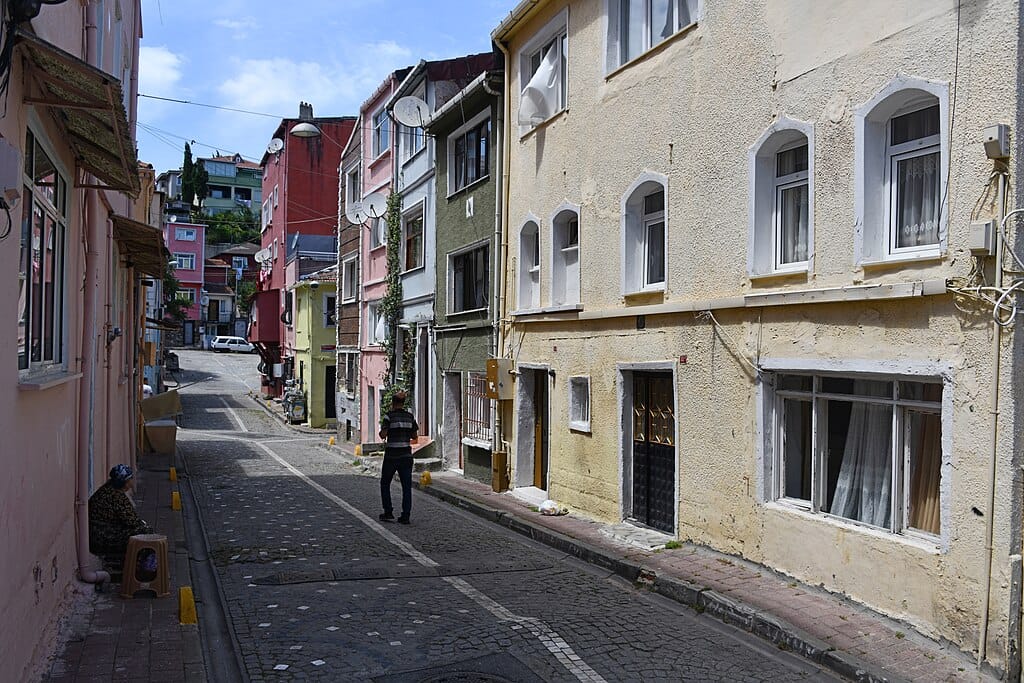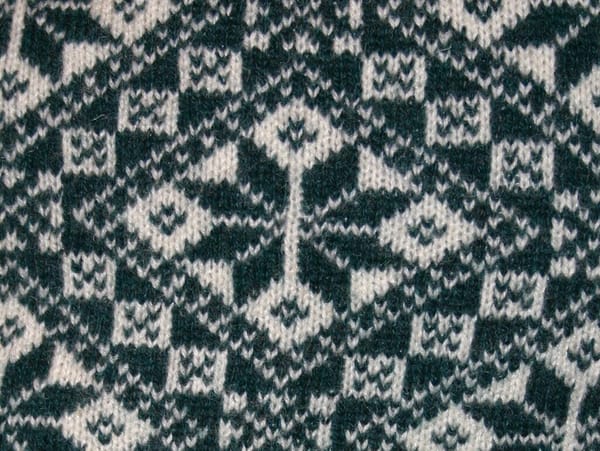Tokludede & Mirrored Life
The death of a neighborhood. Also, the risks of creating mirrored organisms using synthetic biology.

Featured Articles
The Painful Transformation of a Historic Istanbul Neighborhood
New Lines Magazine • 13 Dec 2024 • ~4050 words
The changes experienced by the conservative area highlight the death of the old Turkey and the emergence of a new culture created by global capital and development.
In the conversations I had with the teahouse regulars — even those who were outraged at the development — there was a sense of resignation, as if the demolition of Tokludede was the final act in a longer story of decline that had been years or decades in the making. Ismet had linked it to the driving out of the non-Muslims. Others mentioned the loss of the Golden Horn industries or the closure of the local soccer club. For many of them, the development project was not so much the death of Tokludede as the sweeping away of its corpse.
The Dangers of Mirrored Life
Asimov Press • 12 Dec 2024 • ~8700 words
Creating mirrored organisms using synthetic biology could seriously harm extant life, a 300-page report claims. While the risks from mirrored life are uncertain, it is best not to find out.
It’s important to note that the 300-page report, while presenting detailed evidence for the potential harms of mirrored life, uses painstakingly speculative language. The words “may” and “possible” appear hundreds of times. This reveals an uncomfortable scientific truth: nobody knows exactly how a mirrored organism would spread, how infectious or deadly it would be to natural life if released, or whether it could somehow be contained. Nobody even knows when such an organism could be created — it may not happen for several decades. Still, the Science article’s authors argue that now is the appropriate time to “consider and preempt risks before they are realized.”
Recommended Articles
The Texans Who Dream Of The Habsburg Empire
GQ • 12 Dec 2024 • ~5700 words • Archive Link
Evan McGarvey explores some unique passions of Texans, from a convention celebrating a Habsburg monarch to the iconic Dallas Cowboys cheerleaders. He claims these interests reflect a desire for independence and identity, which results in a state filled with various cult-like communities.
What’s appealing about a cult is what’s appealing to the outsider about Texas: living a personal, idiosyncratic life free from judgement or assessment or interference. Writer and Texan Lawrence Wright wrote that Texas sees itself as free of neurosis. I’d argue that in reality Texas is just as neurotic as some imagined Upper West Side. Except that Texas’s neuroses don’t remain dormant. They explode
To the manor bought: the Americans who want to be British lords
The Economist • 13 Dec 2024 • ~3700 words
It turns out that there is a decent market for noble titles, even in this day and age. Kent Russell explores the story of people like George Wentworth, who seek to become lords through the purchase of manorial titles.
Aristocracy retains a certain mystique for Americans like George and me precisely because our identity is cast in opposition to it. Our politics, art and culture has at its heart the belief that titles of “nobility” conferred by a monarch are ridiculous. Men are created equal, and so on. Hereditary nobles, like all good monsters, are gross and engrossing because they defy modern democratic principles. As disenchantment with these principles grows, so does interest in their antithesis. This interest transcends our everyday fascination with the British royal family, which stems mostly from the Windsors’ made-for-TV blend of palace intrigue and celebrity gossip. Real aristocrats are both living fossils and tailor-made nemeses. They send chills down our spine and shivers up our inseam when they, say, appreciate fine art, hold their cigarettes at odd angles and answer the question, “Oh so you think you’re better than us?” simply by existing.
Four Decades After the Fall of Argentina’s Dictatorship, a Fight Over the Country’s Darkest Chapter Is Reopening Grievous Wounds
Smithsonian Magazine • 12 Dec 2024 • ~6050 words
Inside the fight to memorialize victims of the military junta that ruled over the South American nation in the 1970s and ‘80s.
Today, more than four decades after the fall of the dictatorship, the pervasive and unresolved trauma inflicted by that period is evident in many forms across Argentina. The Mothers of Plaza de Mayo, a nonviolent protest group formed in the early days of the dictatorship by mothers of desaparecidos, still demonstrate once a week in front of the Casa Rosada, the presidential palace. When I visited Buenos Aires this past September, hundreds of young people gathered in a plaza outside the National Congress for the annual commemoration of the “Night of the Pencils,” when on September 16, 1976, masked military gunmen kidnapped ten high school students who had led protests for cheaper bus fares, then tortured the students and later killed six of them. For the anniversary, protesters blocked traffic, held up photographs of the dead and chanted “Nunca Más,” or “Never Again,” the mantra that became a rallying cry across Argentina after the dictatorship.
Lords Of The Untamed Wild
NOEMA • 12 Dec 2024 • ~4750 words
Concerned that the wilderness might actually be too wild, some conservationists are wondering if the future of their field must be more intensive human control over nature.
It quickly becomes evident that “rewilding” does not really mean removing human agency from the landscape — if anything, it means increasing it in service of nostalgia for a place we’ve never been. Many of these projects suffer from the same paradoxes as fortress conservation. They try, in Jørgensen’s words, to create a world with “more animals and less people (or at least, much less intrusive people)” — in the process minimizing the fact that people are animals too, with a long environmental history that cannot simply be erased. And yet, even still, they cannot escape the curse of Adam, to behold creation and immediately subsume it to our own idea of it. Rewilding Britain, an advocacy group, promises rewilding will deliver “nature-based jobs and businesses” and commits to improving access to conservation areas until “wild nature [is] a right for all.” They should heed what the American conservationist Aldo Leopold wrote in “A Sand County Almanac”: “All conservation of wildness is self-defeating, for to cherish we must see and fondle, and when enough have seen and fondled, there is no wilderness left to cherish.”
What Learning by Doing Looks Like
Construction Physics • 12 Dec 2024 • ~6700 words
Brian Potter explores the evolution of polycrystalline diamond drill bits as a case study for learning by doing.
. . . even though learning by doing isn’t the only part of the learning curve, it’s nevertheless an important facet of it, and of technological improvement more generally. One way to understand the learning curve is to look specifically at technologies where progress does seem to have been heavily driven by accumulating experience. One such technology is polycrystalline diamond compact (PDC) drill bits. Over the last 50 years, PDC bits have gradually become the standard drill bit for drilling oil and gas wells, replacing the previous roller-cone bit technology. As PDC bits have improved, they’ve made it possible to drill faster, and to drill for longer without having to change out the bit, both of which make it cheaper to drill a well. By making drilling faster and cheaper, PDC bits have helped enable the shale revolution, and are one of the drivers of progress in enhanced geothermal energy.
The Gilded Age of Medicine Is Here
The New Yorker • 12 Dec 2024 • ~3100 words • Archive Link
Health insurers and hospitals increasingly treat patients less as humans in need of care than consumers who generate profit.
2024 was arguably the year that the mortal dangers of corporate medicine finally became undeniable and inescapable. A study published in JAMA found that, after hospitals were acquired by private-equity firms, Medicare patients were more likely to suffer falls and contract bloodstream infections; another study found that if private equity acquired a nursing home its residents became eleven per cent more likely to die.
How America Turned Allies into Enemies in Afghanistan
New York Times • 12 Dec 2024 • ~5850 words • Archive Link
The United States killed its own allies, sabotaging itself in a part of Afghanistan where it never needed to be.
By all accounts, the Americans virtually ensured their own defeat: They repeatedly bombed their closest supporters here, showing just how little the United States understood about the war it was fighting. Civilian casualties are tragically common in war, in Afghanistan or anywhere else. But these attacks were different, residents here say. The Americans killed and maimed the very people who supported them most, swelling the Taliban’s ranks by turning allies into enemies.
Why the old man dances
Aeon • 10 Dec 2024 • ~3500 words
Religious ritual to appease the gods or free expression of human agency? For the ancient Romans, dance could be both.
In ancient Rome, dance was ubiquitous. It was practised and watched everywhere, including during religious rituals (such as those performed in honour of Apollo), on the theatrical stage and in private houses. It was the object of nuanced reflections on the part of Roman philosophers and poets. Careful study of their texts yields hints as to what they thought dance accomplished and gets us closer to understanding Roman culture and religion, especially in its performative dimensions. What can we learn today about the Romans and their religion when we study their reflections on dance?




